
From March 29th to February 1st, 18 Stanford students travelled with the Stanford Film Society (SFS) to Park City, Utah, for three days at the Sundance Film Festival. Here, a handful of those students offer their opinions on the handful of movies they saw.
***
3 and 1/2 Minutes (dir. Marc Silver)

“I was on the verge of tears throughout this poignant documentary, which follows the shooting of Jordan Davis, an unarmed black teenager, by a white man at a gas station. From the moment itself through two rounds of court cases, 3 and ½ Minutes was emotionally charged and never strayed from its intention: to show the harmful effects of the ‘Stand Your Ground’ law and to reveal the role of racial bias that colored one man’s perception of some teenagers playing loud music. In light of the events in Ferguson and New York, this timely documentary is a must-see.” - Katharine Schwab
The Bronze (dir. Bryan Buckley)
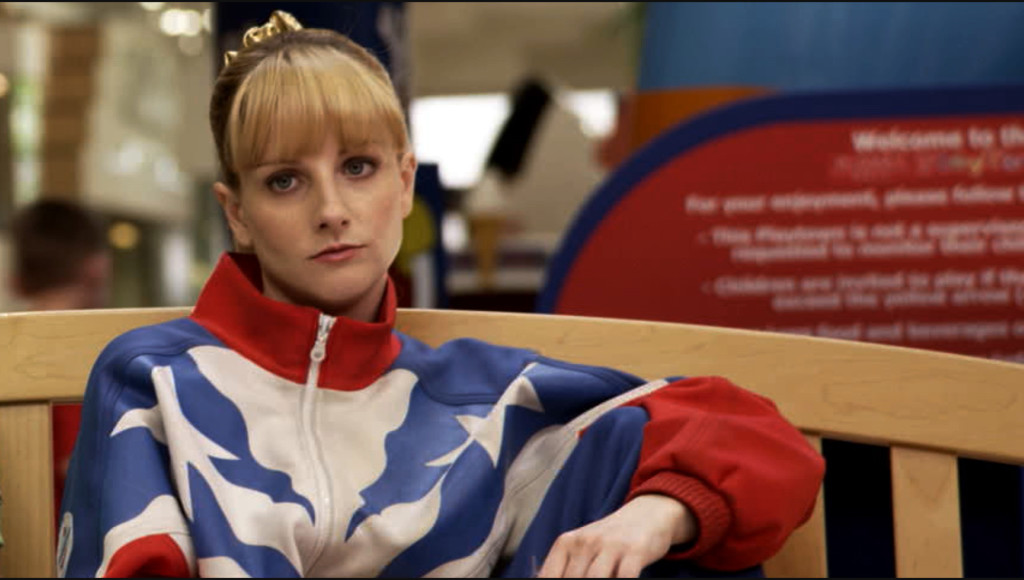
“In The Bronze, Bryan Buckley hilariously portrays the struggle of a washed-up Olympic gymnast and her inability to cope with her diminishing stardom. This extremely raunchy yet uplifting film captures human desire to live out our ‘fifteen minutes of fame’ while mixing in a convoluted love story and incessant profanity. By illustrating the struggle we all face with the temporal nature of all good things, The Bronze is twistedly cathartic yet wonderfully entertaining and for these reasons, got ‘the gold’ in my eyes.” - Coby Palivathukal
Brooklyn (dir. John Crowley)
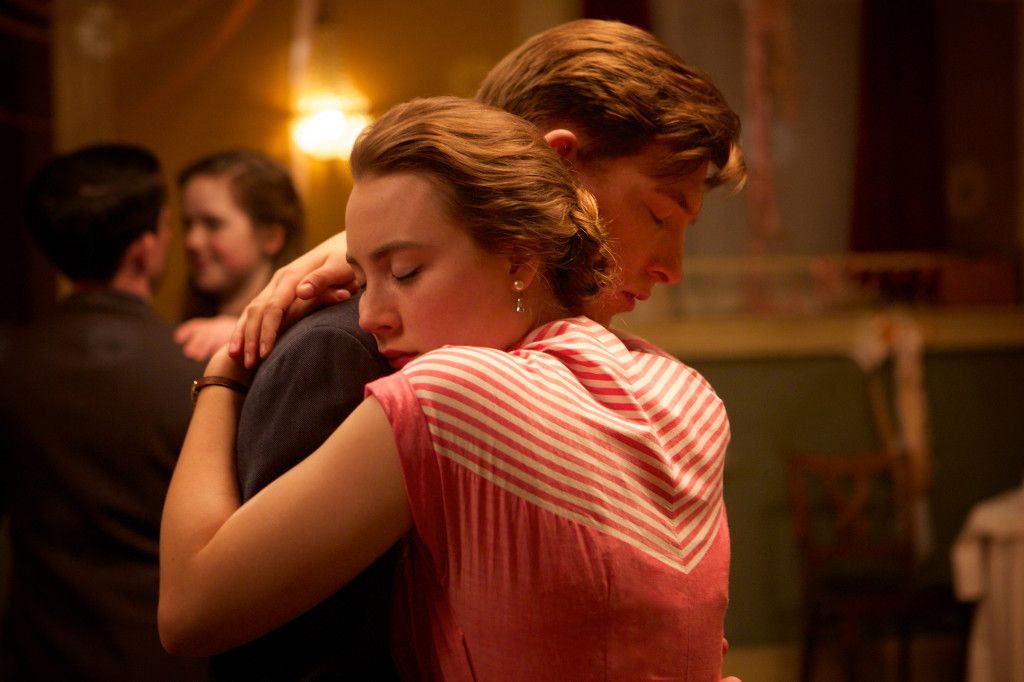
“When you walk out of a theatre having felt something, learned something, and dreamt something, it is a rare and wonderful thing. Brooklyn gave me that, making it far and away my favorite film of the festival. An immigrant love story that grapples with new beginnings, unknown expectations, and what it means to find your way home.” - Cody Behan
“Attempt at chemistry in period film can feel a bit stale, outdated even. Har har. But honestly, Emory Cohen and Saoirse Ronan’s characters’ chemistry in this film was vital, it was real, it was fresh, it was true.” - Justine Beed
Chorus (dir. François Delisle)
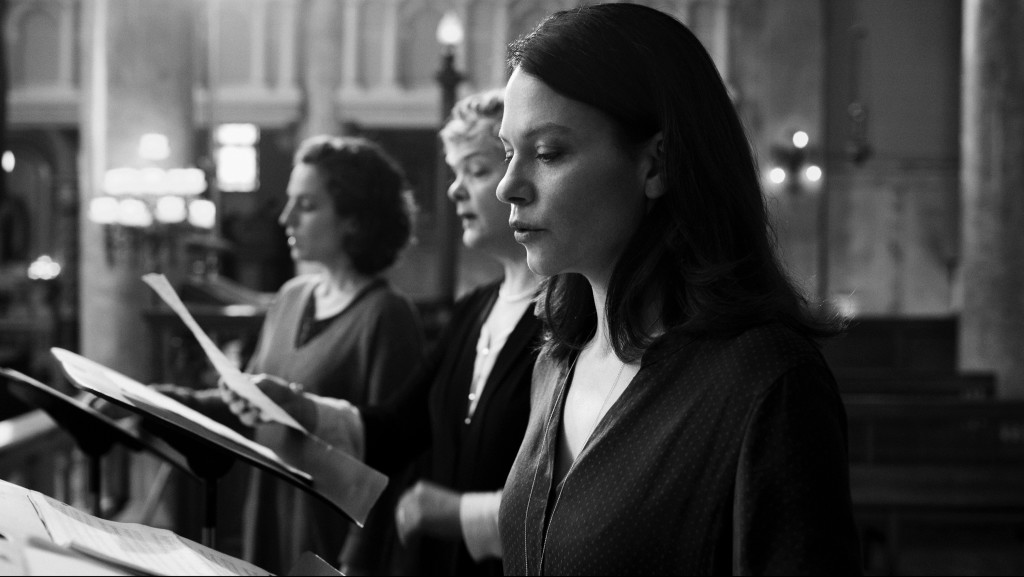
“A gorgeous film: aesthetically, emotionally, narratively. The entire film, set in French Canada, is in black and white, and the camera focuses itself on lusciously detailed objects within the world of the film, helping to clarify the characters’ painful experience. I was wholly impressed by the strong performances of the two protagonists, who play Mother and Father to a non-existent son. The director chose to concentrate on the human body and the physical embodiment of suffering, which added a layer of originality to the overall piece: watching actor Sebastien Ricard roll naked through the powerful currents of the Mexican ocean was a feast in and of itself. I highly recommend: but be warned, prepare to cry. A lot.” - Jessica Waldman
“While the main plot points circle around the ugliness and brutality of sexual violence, the real focus of Chorus is the absolute capitulation of a couple’s love to an annihilating sense of grief. Director François Delisle conveys this drama through subtly scripted scenes, and the use of black-and-white film that strips away the superfluous messiness of colour, to reveal only essential emotion.” - Whitney McIntosh
Chuck Norris vs. Communism (dir. Ilinca Calugareanu)
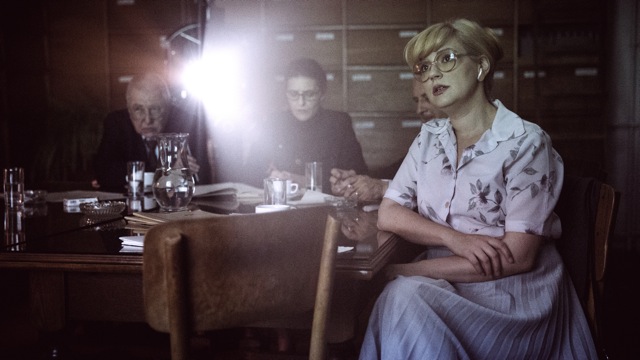
“I was sold by the name alone. This Romanian documentary examines the role of foreign film in communist Romania. With stunning reconstructions, honest and funny interviews, and striking characters, this fascinating story of the woman who dubbed Romania and her fellow rebels reminded me of the power of art against oppression. After the screening, the surprise appearance by Ilina Nistor, the woman herself, put the cherry on top.” - Katharine Schwab
“Quirky and powerful.” - Justine Beed
The Diary of a Teenage Girl (dir. Marielle Heller)
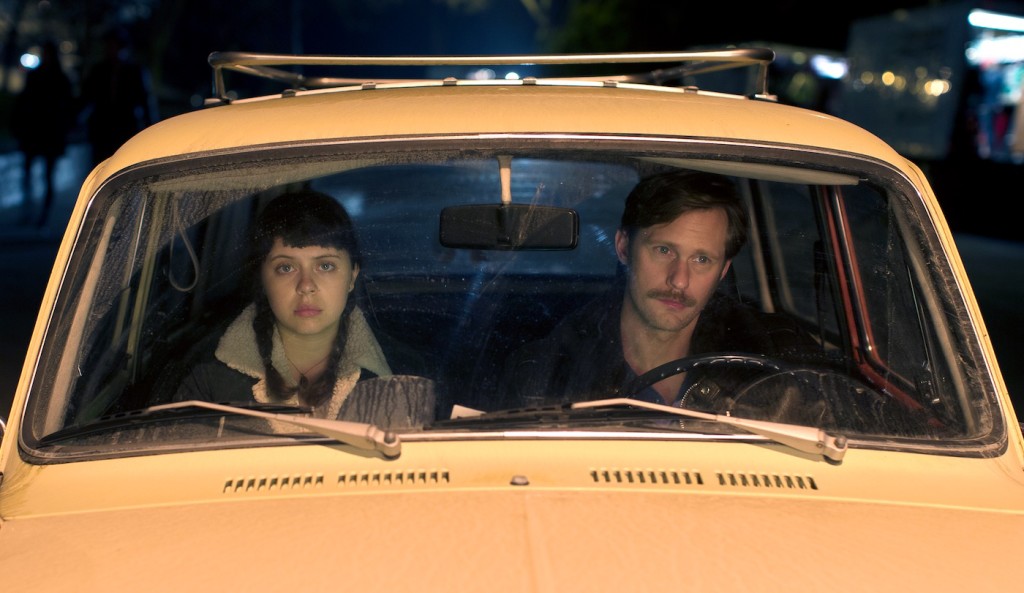
“Wowie. So honest, so refreshing. A stark and passionate portrait of female teenage sexuality, anchored by a performance that just floored me from newcomer Bel Powley. Her face is so gosh-darn expressive. She better be a star.” - Matthew Libby
“A star is born in Bel Powley, who crushes the spectrum of human emotion in 102 minutes. Often heralded for her comedic genius, Kristen Wiig tackles her dramatic role with nuance and grace, leaving us begging for more. This one is a must-see.” - Cody Behan
Dope (dir. Rick Famuyiwa)
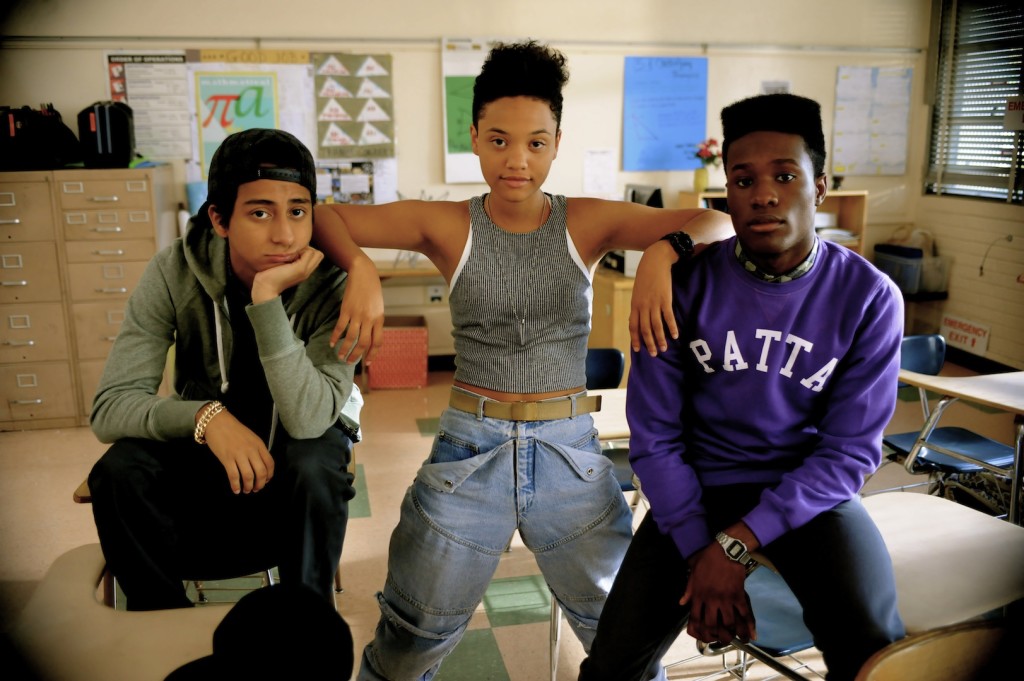
“Welcome to Inglewood–one of the most dangerous neighborhoods in LA. It’s present day. Enter a straight-laced black teenager with an obsession with the nineties and getting into Harvard. Needless to say, Malcolm doesn’t fit in. But when he unintentionally gets involved in a drug deal, his future–and his life–is put in jeopardy. Despite the slightly overdone, preachy ending, Dope offers a valuable perspective on life as a young black man in America, a viewpoint that is highly relevant and tragically underrepresented. Funny, clever and nuanced, Dope is a much-needed voice in independent film and deserves all the accolades it has received over the course of the festival. Look for it in theaters soon!” - Katharine Schwab
“Sadly, I must admit that my extreme exhaustion got the better of me for a bit of this movie (it was an 8:30am screening, and I’m only human) but what I was able to pry myself awake for was a funny, vibrant, important movie that deserves as wide an audience as possible. It already has a release date–June 12th–and I can’t wait to see it again, which is the biggest compliment I can give a movie I don’t remember about a quarter of.” – Matthew Libby
“Dope was dope.” - Justine Beed
The End of the Tour (dir. James Ponsoldt)
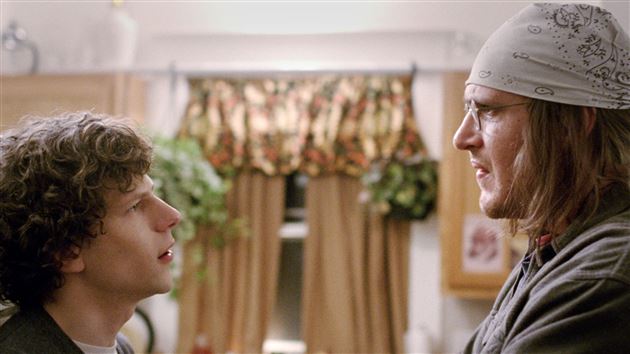
“The film of the festival for me. In 1996, Rolling Stone writer David Lipsky, like the rest of the country, was fascinated with–and jealous of–David Foster Wallace, the guarded author who recently published his magnum opus, Infinite Jest. Over five days, Lipsky interviewed Wallace, hoping to find some deeper connection between man and author, some secret to the artist’s genius. Jesse Eisenberg plays Lipsky, and Jason Segel, in a heartbreaking, beautiful performance, plays Wallace. The film, written by Pulitzer Prize-winning playwright Donald Margulies, is 95% dialogue, and, like a great Linklater film, it is never dull, and always riveting. Wallace never resolves his contradictions, Lipsky never finds the definitive answers he was looking for, and Rolling Stone never publishes the interview. David Foster Wallace stays a mystery. In one of the most affecting scenes, Lipsky, surveying Wallace’s house, steps into his study, but the room is shrouded in darkness. It becomes painfully clear that part of Wallace’s mind will remain that way forever.” - Matthew Libby
“Oh YES. My favorite film of the festival. I feel such a closeness to David Foster Wallace after spending a summer reading his Infinite Jest, and it felt indulgent in the best possible way to watch 2 hours of his likeness on screen. Jason Segel is DFW–he brought him to life; I really feel as if I spent my time in the theatre with the real DFW and not a representation of him. Jesse Eisenberg brought just the right amount of quirk and writerly neurosis to his role, playing a perfect compliment to the philosophical and contemplative Segel. The filmmakers were cleverly cognizant of the thematic landscape of DFW’s work–practically every scene is littered with media invasion: billboards, advertisements, fast food marquees, and good old American commercialism. This is a movie for every writer to watch. I am stunned.” - Jessica Waldman
Finders Keepers (dir. Bryan Carberry & J. Clay Tweel)
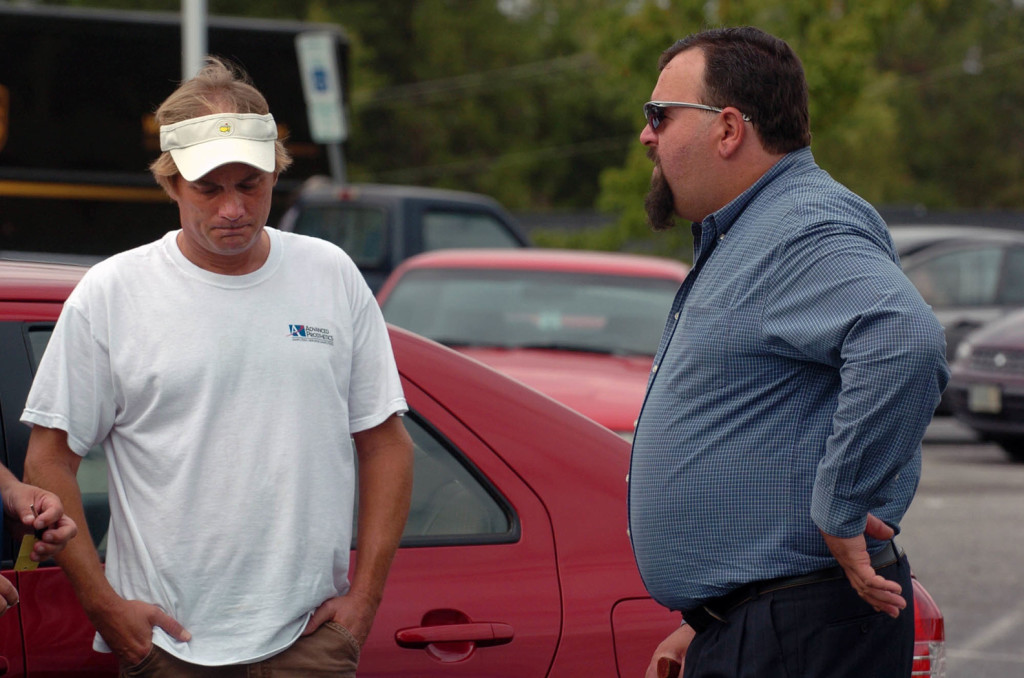
“For any documentarian, real-life personalities such as those of Shannon Whisnant and John Wood are a dream come true. This doc, covering the years-long custody battle between these two over Wood’s amputated leg, is absurd, funny, and ultimately emotionally rewarding. It gets repetitive, even at 82 minutes, but Whisnant and Wood’s larger-than-life, eventually painfully human, worldviews carry us through.” - Matthew Libby
Grandma (dir. Paul Weitz)
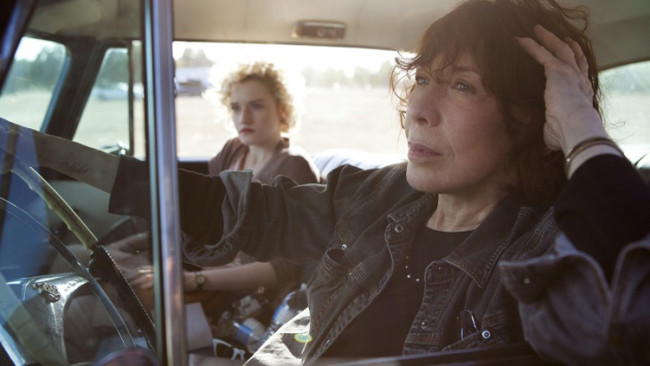
“Lily Tomlin is one hell of an actress, and she owns this movie in a great late-career performance. She’s supported by a superb cast, including Julia Garner as her granddaughter with a problem, Marcia Gay Harden as her abrasive, scene-stealing daughter, and Sam Elliott, who I loved seeing actually act again after years of playing parodies of himself, as an old flame. The film is the definition of ‘nothing memorable’ but it was a sweet, funny, ultimately moving film while it lasted. And it’s worth seeing for Tomlin, who is more than back in her element as the foul-mouthed, misanthropic lead. Shoutout to Laverne Cox, who has a nice little scene in the movie as well.” - Matthew Libby
The Hallow (dir. Corin Hardy)
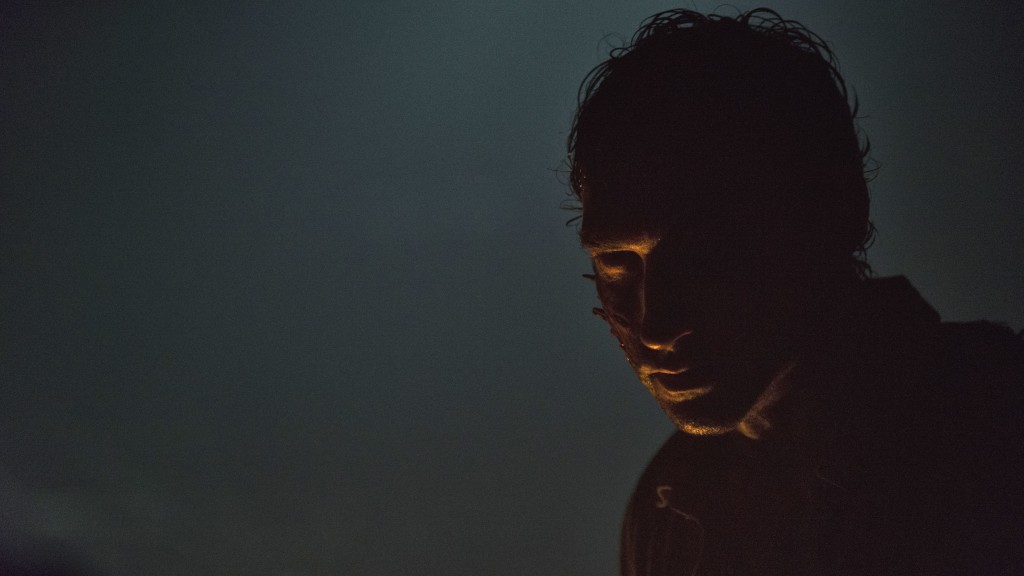
“Pretty generic as far as horror movies go, but crafted well enough to be effective. More characterization for the leads and more mythology-building would’ve helped, but there are some really wild set pieces and it more than held my attention. It’s like if David Cronenberg and Terrence Malick made a monster movie, which is a pretty baseline interesting combination of things.” - Matthew Libby
How to Change the World (dir. Jerry Rothwell)
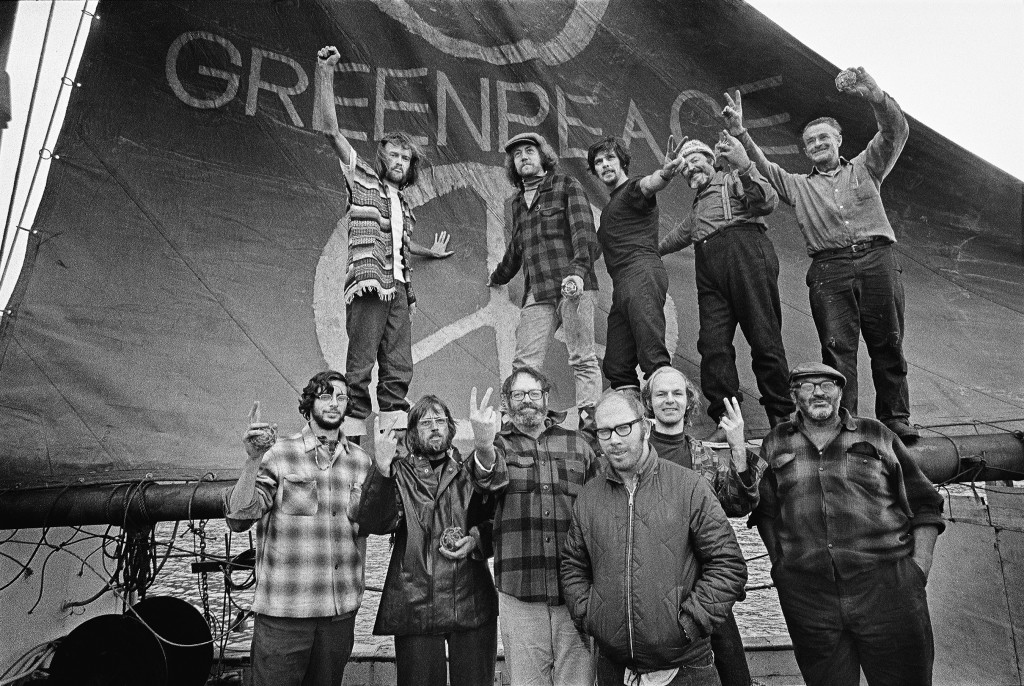
“Throughout this documentary about the politically charged creation of Greenpeace, the viewer is guided by a tenaciously poetic voice. It seems throughout the film that the role of ego in ‘wanting to change the world’ endures, especially considering the saga of bureaucratic conflict within the organization. Many people want to be that one person who changes the world, the person who makes a difference, many people want to be the person. Yet, the voice of Bob Hunter (Greenpeace’s primary founder), the voice that guides us through a story of both the selfless and selfish motives behind Greenpeace’s environmental activism and organizational make-up, slowly evolves into a voice less to do with ego and more to do with the public spirit. The point that the voice behind a movement is trying to make is this: to really change the world you’ve got to strive to leave behind a legacy that goes beyond that of your own.” - Justine Beed
“How to Change the World illustrates the conception and evolution of Greenpeace, the accidental lovechild of a small group of activists who set out to protest nuclear testing in the 1960s. Past and present merges as the documentary flips between unseen footage of initial protests, and interviews with the founders who provide invaluable insight and commentary. As much as the film is about social impact, it is about the personal change of Greenpeace’s initial leaders, who struggled to control a movement that grew at too fast a pace. The documentary captures the birth of environmental activism, and the attempts of a generation to do what they could to change the world.” - Whitney McIntosh
I Am Michael (dir. Justin Kelly)
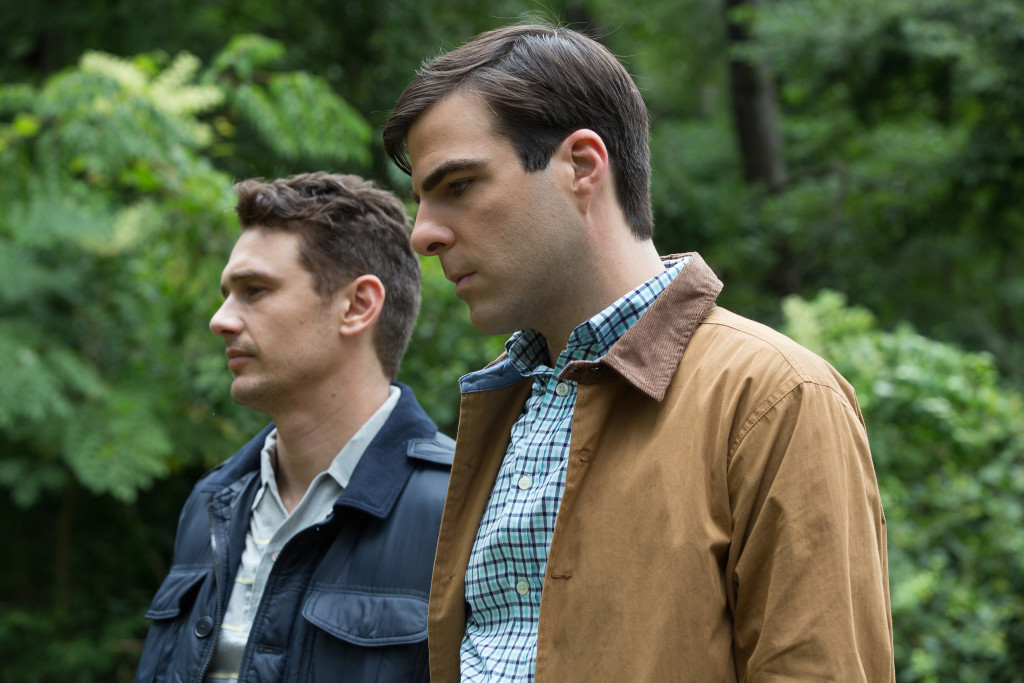
“They say the best drama happens when an unstoppable force meets an immovable object. In I Am Michael this clash takes place in the psychology of one man. James Franco is at his all time best portraying Michael Glatze, struggling to reconcile two parts of his whole self — each fundamentally opposed to the other.” - Cody Behan
It Follows (dir. David Robert Mitchell)
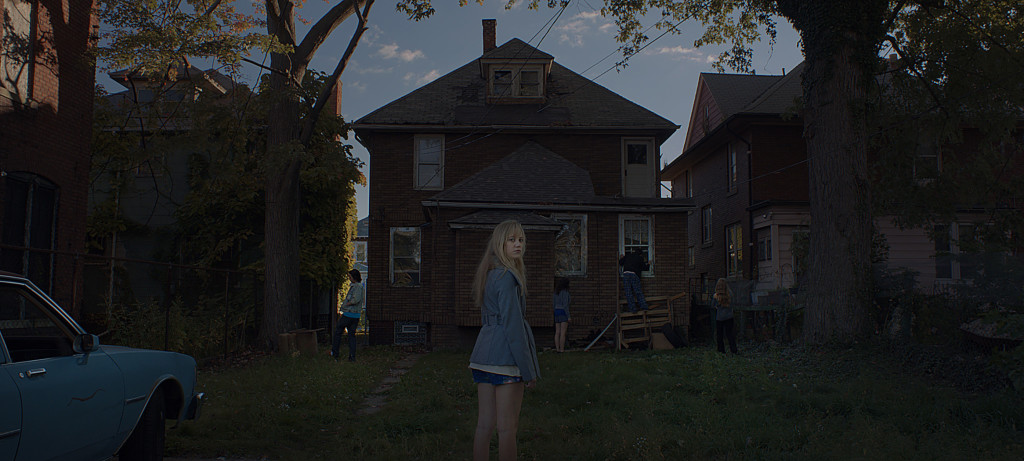
“Well this was terrifying. Imagine that having sex with certain people leads not an STD but an STG–a Sexually Transmitted Ghost/Supernatural Being who will follow you with the intention of killing you. The film started well but ended badly. Now I can’t do anything alone.” - Jessica Waldman
“I screamed a lot. I was definitely the most vocal person in the theatre.” - Cody Behan
“It’s definitely scary. And it’s damn well-shot. Maika Monroe is very attractive. Glad I saw it at midnight. That’s about all I got for this one.” - Matthew Libby
Me and Earl and the Dying Girl (dir. Alfonso Gomez-Rejon)
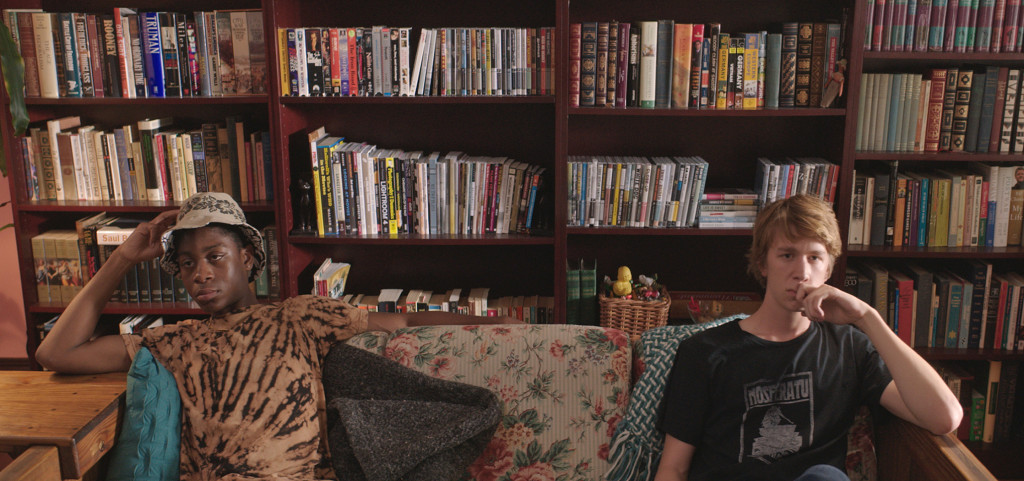
“I am having difficulty writing this review because Me and Earl and the Dying Girl is a complete work of art, and in being so, is impossible to describe. It makes you laugh and cry in equal measure. It flawlessly uses animation and the avant garde to create a beautiful reality. It pulls at your heartstrings, yet does not feel at all contrived. The movie both demonstrates and encapsulates how art is necessary to express the emotions that words cannot. It is, truly, stunning.” - Jackie Emerson
Northern Great Mountain (dir. Amanda Kernell)
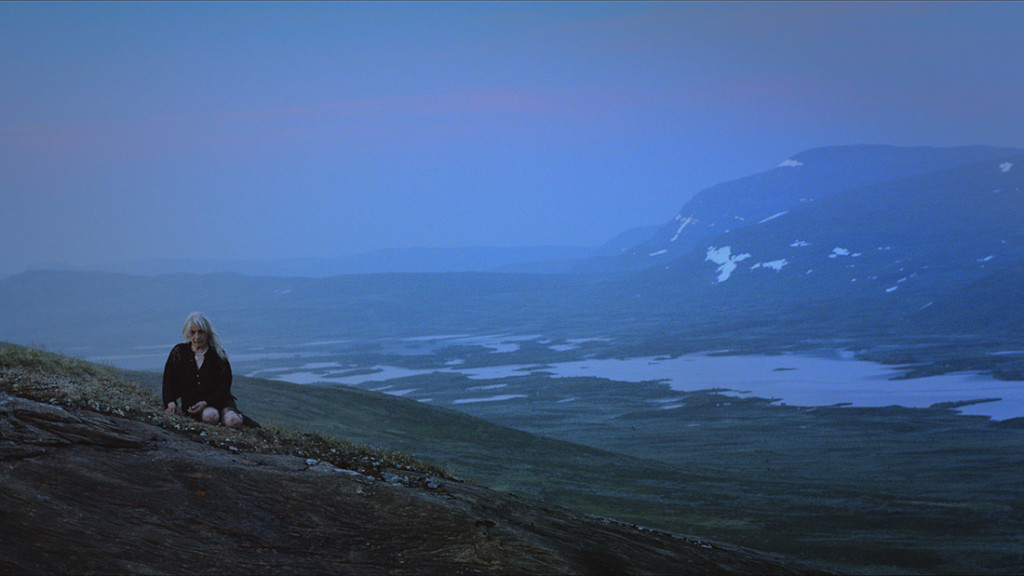
“A disheveled elderly Sámi woman turned Swedish city-woman climbs a rocky hill on her hands and knees trying to get back to something, trying to accept something that she so long rejected. One of the most powerful shorts I was able to see at the festival, probably one of the most powerful shorts I’ve ever seen period.” - Justine Beed
Results (dir. Andrew Bujalski)
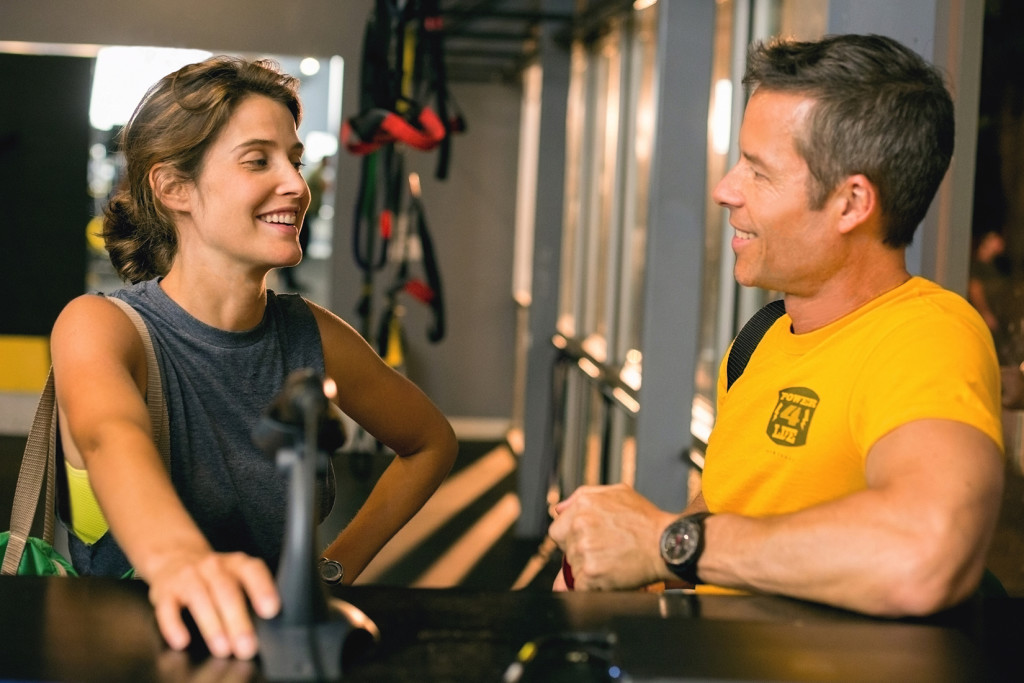
“Immaculately cast and very entertaining, Andrew Bujalski’s rom-com deconstruction ends up feeling slight, but worth your time nevertheless. If you ever wondered if Leonard from Memento and Robin from How I Met Your Mother would have romantic chemistry, your answer is: oh yeah.” - Matthew Libby
“I don’t know if I’d recommend this one. A man with virtually no redeeming qualities comes into a lot of money, buys a mega house in Texas, and hires a female personal trainer, who he (what do you expect) develops a major fetish for. The plot kept me interested for the first 45 minutes of the movie, but the next hour felt action-less and repetitive. Some funny gags about working out and kale juice abound, and kettle balls make a cameo appearance.” - Jessica Waldman
“Fairly slow and repetitive, Results at first captivates the audience with its exercise-centric premise, and then descends into an thoroughly expected semi-romantic narrative. Amidst somewhat monotonous acting, Kevin Corrigan saves the day through his unappetizing character, and unashamed baldness.” - Whitney McIntosh
Slow West (dir. John Maclean)

“The destruction of Western Romanticism.” - Will Hamilton
“This modern Western built suspense on the edge of a knife–or on the head of a bullet. Bloody and tragically romantic, Slow West drifted along, the implications of being too quick with a gun settling like a blanket over the audience. Before I knew it, we were suffocating (in the best way possible).” - Katharine Schwab
“A tragicomic existential satirical Western. A foreigner’s look at American myth. Perfectly paced, beautifully shot, and wonderfully acted, this is a slight, odd little film that leaves a huge impact. Its humor is almost as big as its heart.” - Matthew Libby
“A meander through adolescence amidst an array of tragically unprepared role models wearing cowboy hats and armed with shotguns. Slow West is a comical mix of Wes Anderson and overly bloody satire, summed up in a single moment at the end.” - Whitney McIntosh
The Stanford Prison Experiment (dir. Kyle Patrick Alvarez)
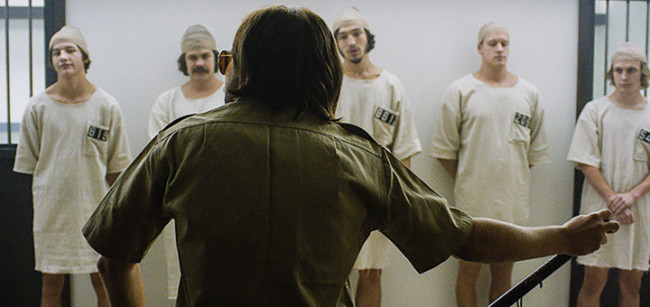
“That shit’s fucked up.” - Harley Sugarman
“A superb film.” - Toa Lohe
“You’ve heard about in Psych 1. You’ve heard about it in Psych 70. You’ve heard about it in any other class the Stanford Psychology Department has ever offered. But did you know how truly, truly fucked up it all was? The natural, human descent into darkness is portrayed so vividly, so viscerally, so emotionally in The Stanford Prison Experiment, that, like the characters, we are constantly forgetting what we’re experiencing is a psychological study. Instead, what we get are three groups: the prisoners being abused, the guards doing the abusing, and the personification of institutional failure filming it all. What we also get are excellent performances from the young ensemble, truly inventive and fascinating direction, and scarily accurate recreations of the basement of Jordan Hall. (We also get one of the most ill-advised endings I can imagine, especially with what came before it, but we won’t talk about that.) This is a haunting, terrifying film–the scariest film of a festival in which I saw two horror movies–portraying a complex experiment which is still more than relevant today.” - Matthew Libby
“This one hit close to home–literally–as the entire thing transpires in the basement hallway of our very own Jordan Hall. I imagined my guy friends all signing up for a spot in a summer Psych department experiment, hoping to make good money and to chill on campus. These characters are people we know: the guys biking next to us campus, walking through our dorms, sitting in our classes. And this experiment wholly fucked them up. You’ll kind of want to puke while watching this movie, but it’s an important one to watch–at what point does an experiment meant to help humanity cross the line? I found it interesting that they completely villainized the character of Phil Zimbardo, the doctor in charge of the experiment–apparently real-life Zimbardo helped out in the making of the film, but he seemed utterly detestable and unsympathetic to me. As the people sitting next to me could attest, I kept trying to punch the movie screen when his face appeared. I think we all had visceral reactions. Hopefully they’ll screen this one on campus.” - Jessica Waldman
“All those up-and-coming young actors you’ve seen on Nickelodeon and Disney Channel made for one hell of an ensemble cast, and I mean it too–the grit in their performances, all of their performances, is far from that toothy stuff from their cable-programming days of old.” -Justine Beed
Stockholm, Pennsylvania (dir. Nikole Beckwith)
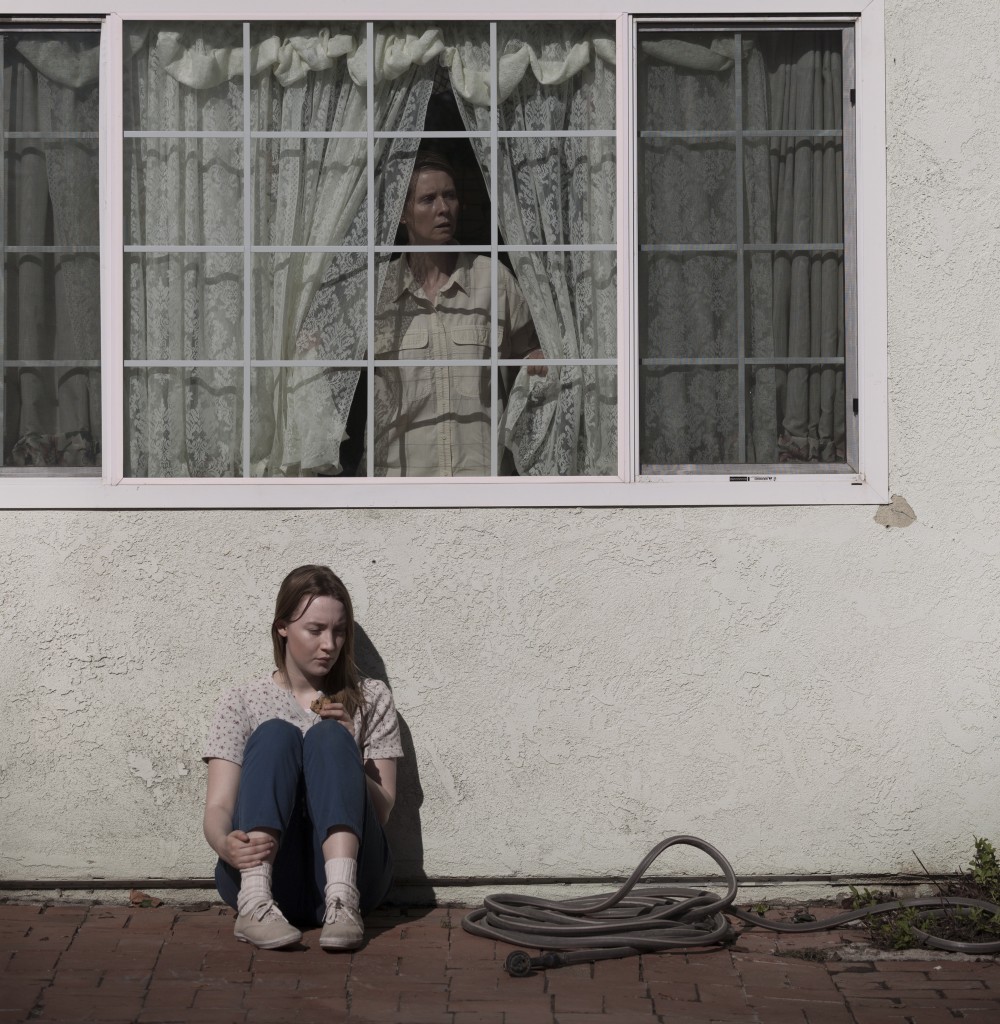
“Matt Libby will disagree with me, but this film I felt in my bones. Stunning performances from Saoirse Ronan, who seems to excel in playing creepy female roles (I was reminded a lot of her performance as Briony in Atonement), and from Cynthia Nixon (hint: very different from her Sex and the City persona, surprise surprise). The director/writer is a newcomer to filmmaking, but you never would have guessed. I hope she keeps on writing. A dark, psychologically haunting piece about the patterns of humanity and the non-existence of happy endings.” - Jessica Waldman
“Gotta disagree with Jess Waldman on this one. It’s claustrophobic to the point of flatness, and everything in its wake is flattened. The characters are paper-thin caricatures masquerading as complex, and the actors can only do so much. The ending is in thematic opposition to everything that came before it, making my feeling walking out of the theater one more of bewilderment than horror. The staging of the numerous long dialogue scenes is lifeless and fundamentally uninteresting–standard coverage can only take you so far. It all felt artificial–like actors talking words at each other, instead of real people engaging in drama. If you want a prime example on how to characterize, stage, and shoot a claustrophobic story, go watch The Stanford Prison Experiment instead.” - Matt Libby
“I was neither wowed to Jess’ sensation of bone-feeling, nor do I agree with Matt that it was flat or inconsistent. Instead, I got the sensation I was watching a play with the luxury of being four feet away from the actors. Yes, there are long dialogue scenes, which is particularly dangerous if you don’t know how to write dialogue. But that’s clearly not an issue for writer/director Nicole Beckwith, who plays the ‘what if’ game beautifully as she throws our protagonist into a nightmare we can only hope to never encounter. Maybe cinephiliacs everywhere will cringe when I say this, but I don’t believe a strong film requires dynamic staging or a constant stream of action. For me, an engaging dialogue in which two people are locked in a room, working through their issues will suffice. This was just that. And it was a pleasure watching it unfold.” - Cody Behan
Songs My Brothers Taught Me (dir. Chloé Zhao)
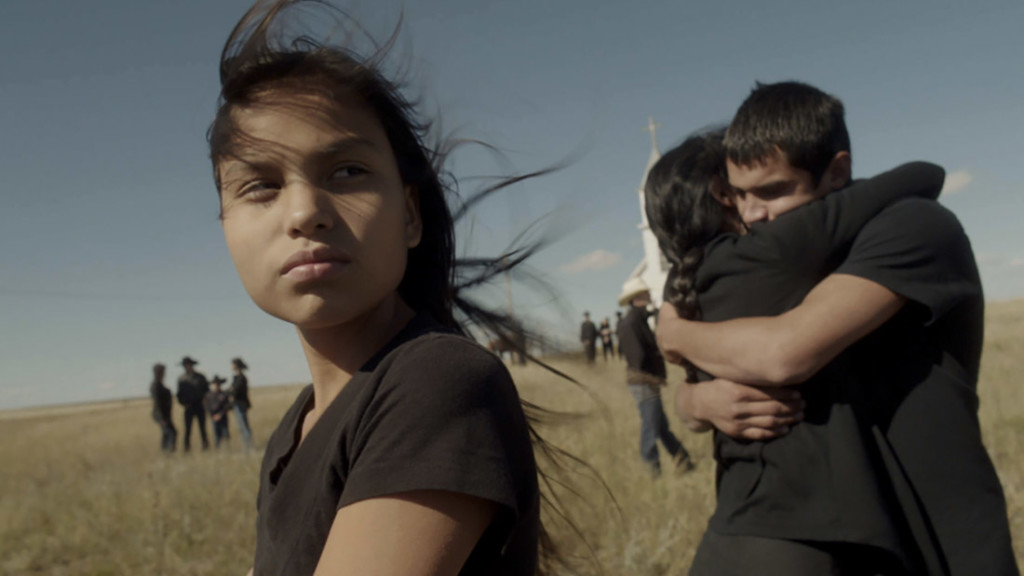
“A stunning cinematographic portrayal of modern day life on the Pine Ridge Indian Reservation, Songs gives us something so desperately lacking in mainstream filmmaking: diverse perspective. Though silence pervades most of the film–at times purposeful while at others empty–Songs’ presence in the festival circuit shows promise for the future of film, and the first-time director Chloé Zhao.” - Cody Behan
Umrika (dir. Prashant Nair)
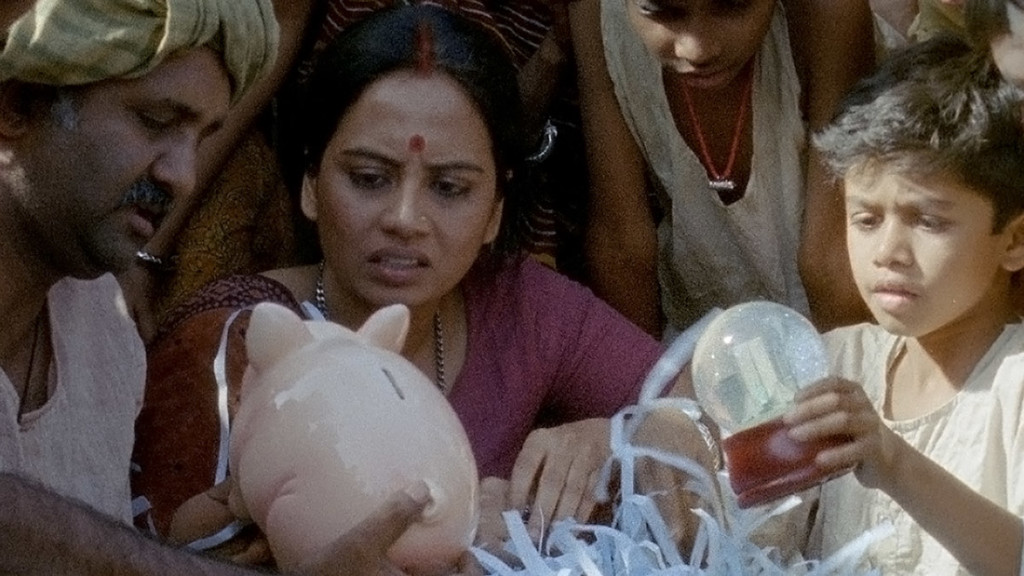
“In this heartbreaking tale, a young boy lives in the shadow of his older brother, who was able to leave their rural village in India and immigrate to ‘Umrika’ — ‘America,’ in Hindi. When he finds out that his brother’s success has been a lie, the boy decides to find his brother, leading him to discover the harsh discrepancy between dreams and reality. Umrika made me laugh, it made me cry, and it touched me more deeply than any other film I saw at Sundance. There’s a reason it won the World Cinema Dramatic Audience Award.” - Katharine Schwab
“The director of the film, Prashant Nair, is a Third Culture Kid (TCK for short), someone who grew up overseas, away from the nationalistic origins of his parents, for most of his life, a ‘hidden immigrant’ for the rest of it. Umrika is a story about the implications of deciding to emigrate, the moment before the actual transition and how that moment before is a transition in itself. After the credits rolled and the panel took place, Katharine and I went up to talk to Nair. In speaking to the influence of his mobile upbringing in his desire and drive to be a filmmaker he said that, ‘It made sense, to want to go into filmmaking, to want to immerse myself in a new story every couple of months. I’d been practicing most of my life to do that so it just made sense.’ Umrika was exactly that, an immersion into the life of a not-yet immigrant and turning how many may approach the exoticism of ‘the other’ on its head.” - Justine Beed
Z for Zachariah (dir. Craig Zobel)
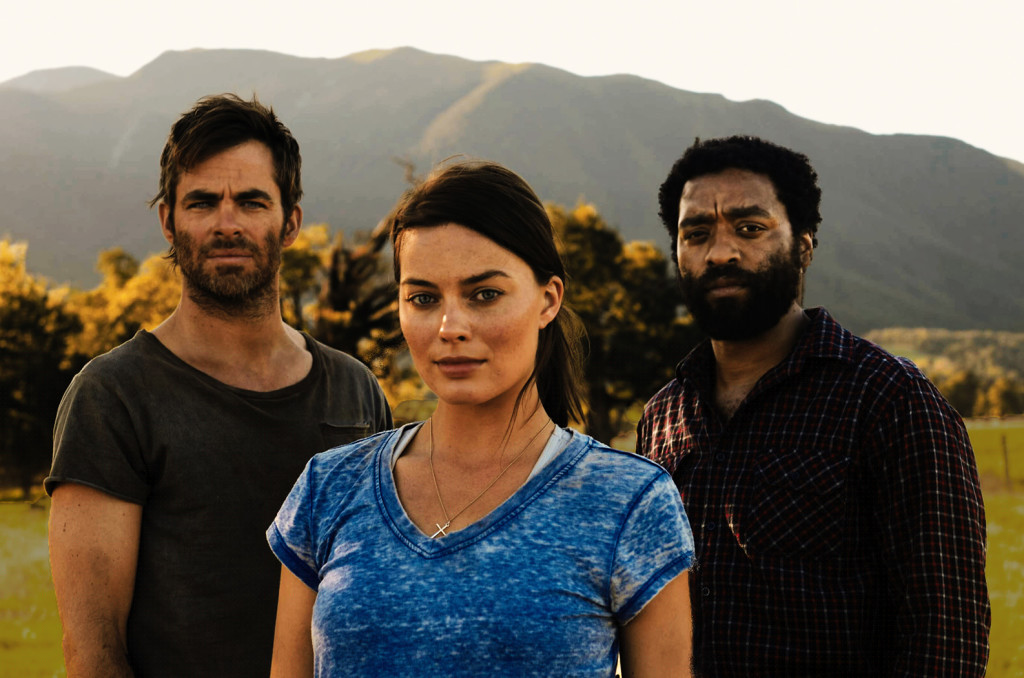
“Towards the end of the film, Ann, played by Margot Robbie, says something along the lines of ‘I don’t know how we ended up here.’ She’s referring to her inability to fathom the events that led them to that emotionally charged point in the movie, but I can use the same words in a different context to describe the film as a whole. Three characters, three conflicts, a 90-minute runtime. Yet it’s all so vague–the themes, the motivations–I literally didn’t understand their actions, their situations, their resolutions, anything. There’s an interesting movie to be made here, and this wasn’t it. Not bad, and pretty well acted, but ultimately disappointing.” - Matt Libby
“An very interesting film. You don’t walk out of the theatre with an impression but instead questions about your own humanity.” - Toa Lohe
***
Photos courtesy of Sundance
